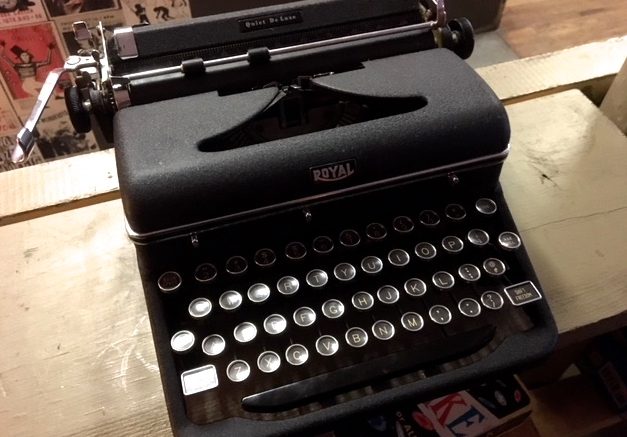
Perhaps more solid information will be provided at a later date, but the fact that what has been presented so far has turned into a major story is bizarre in itself.
By Alan MacLeod
Fairness & Accuracy In Reporting (7/3/20)
Based upon a bombshell New York Times report (6/26/20), virtually the entire media landscape has been engulfed in the allegations that Russia is paying Taliban fighters bounties to kill US soldiers.
The Washington Post (6/27/20) and the Wall Street Journal (6/27/20) soon published similar stories, based on the same intelligence officials who refused to give their names, and did not appear to share any data or documents with the news organizations. “The Wall Street Journal and the Washington Post have confirmed our reporting,” tweeted the Times article’s lead author, Charlie Savage. The Post’s John Hudson seemed to back him up: “We have confirmed the New York Times scoop: A Russian military spy unit offered bounties to Taliban-linked militants to attack coalition forces in Afghanistan,” he responded.
Yet these statements were categorically untrue. The Times stressed how unsure they were about the allegations, using qualifying language throughout, such as “it was not clear” and “greater uncertainty.” And Hudson’s own article uses the phrase “if confirmed” in relation to the bounty claims, explicitly conceding they are not confirmed.
It is the job of the covert security services to lie and manipulate. They are among the least trustworthy groups in the world, journalistically speaking, as part of their profession involves planting fake information. The only group less deserving of blind faith than spies would be anonymous spies.
Despite the fact that the anonymous accusations were far from proven, and that both the Post and Journal included categorical denials from all those involved, including the White House, the Taliban and Moscow, much of corporate media treated the story as an established fact from the outset. “This is jaw-dropping,” fumed MSNBC host Rachel Maddow (6/26/20) about the “sickening” news. She throws in an “if this Times report is correct” before going on to treat is as “confirmed” information:
You know from this reporting in the New York Times, which has since been confirmed by the Wall Street Journal, that not only does the president know that Russia was paying for American soldiers’ deaths, paying rewards for Americans dead…his response to that is nothing except a friendly call.
CNN (6/26/20) ran the headline “Russia Offered Bounties to Afghan Militants to Kill US Troops,” while the Guardian (6/27/20) went with a British variant, “Russia Offered Bounty to Kill UK Soldiers”—in both cases presenting the allegations as facts.
‘Officials Said’
This would be troublesome enough, but there are a number of reasons to be skeptical of the veracity of the claims. Firstly, the Times, Post and Journal’s reports are all based on fundamentally untrustworthy actors who refuse to go on the record. Here is a list of all the sources mentioned in the Times report:
- “According to officials briefed on the matter”
- “Officials said”
- “Officials said”
- “Officials said”
- “Said Dmitry Peskov, the press secretary for President Vladimir V. Putin”
- “Zabihullah Mujahid, a spokesman for the Taliban, denied”
- “The officials spoke”
- “Russian government officials have dismissed such claims”
- “Gen. John W. Nicholson Jr., the commander of American forces in Afghanistan at the time, said”
- “Officials were said to be confident”
- “Some officials have theorized”
- “Officials have also suggested”
- “The officials briefed on the matter said”
- “Western intelligence officials say”
- “American intelligence officials say”
- “American officials say”
- “Officials briefed on its operations say”
It is standard journalistic practice to name and check sources. The Society of Professional Journalists’ code of ethics insists that “reporters should use every possible avenue to confirm and attribute information before relying on unnamed sources,” and that we must “always question sources’ motives before promising anonymity,” because too many “provide information only when it benefits them.”
Without a name to go with the source, there are no consequences for sources (or journalists, for that matter) lying and spreading malicious rumors. Using an anonymous source is implicitly asking readers to trust a reporter’s judgment and credibility. The practice is less important with minor details in a story (e.g. “a city nurse said three people had been injured”), but grows exponentially more vital when the source is the basis for the article, and when there are massive consequences in publishing the story. That is why it should be reserved for whistleblowers or others facing serious harm if caught. The Times’ own guidelines on integrity strongly discourages the practice; “There is nothing more toxic to responsible journalism than an anonymous source,” wrote the paper’s public editor (New York Times, 5/30/04).
Allowing unnamed officials to set the agenda in news is something FAIR has constantly criticized (6/25/14, 3/29/16, 4/26/17), and regularly leads to outlets being burned (FAIR.org, 6/30/17, 12/3/18). Therefore, they should be used only when a reporter is completely confident in their veracity. Considering who the sources were for the Russian bounty scandal (intelligence officials), the story, as it was published, should never have left the drawing board. As we wrote recently (FAIR.org, 2/28/20):
“It is the job of the covert security services to lie and manipulate. They are among the least trustworthy groups in the world, journalistically speaking, as part of their profession involves planting fake information. The only group less deserving of blind faith than spies would be anonymous spies.”
Unfortunately, reliance on such sources is near ubiquitous at the Times and the Post. In 2011, FAIR (1/11/11) found that virtually every article on Afghanistan appearing in the two outlets over the course of a week featured material from anonymous official US sources.
The information on the Russian bounties appears to have been both minimal and vague, with officials refusing to show any corroborating evidence or the documents they claimed to have, and were unable to link the accusations to any concrete, real-world events. Perhaps more solid information will be provided at a later date, but the fact that what has been presented so far has turned into a major story is bizarre in itself.
The first response of any credible journalist to receiving this tip, given to them by spooks who refused to put their names to it—and who freely admitted, as the Times report notes, that the information was derived from “interrogated” Afghan fighters, in a country were Human Rights Watch (4/17/19) says torture of detainees is “disturbingly high”—should have been to throw the story into the trash bin, at least until the officials agreed to go on the record. That the authors of the Times article share five Pulitzer Prizes between them suggests that this might not have simply been comically irresponsible and shoddy journalism, however, but something more intentional. …
(Commoner Call photo by Mark L. Taylor, 2020. Open source and free for non-derivative use with link to www.thecommonercall.org )
*****
Anonymity Abuse In The Corporate Establishment Press
But You Didn’t Hear It From… Anyone!
By Janine Jackson
Fairness& Accuracy In Media (11/1/11)
It’s hardly necessary for a critic to argue that the country’s major daily newspapers, the New York Times and Washington Post, routinely ignore their stated principles on anonymous sources (however vague such standards may be to begin with), the outlets make the case so vividly themselves.
The New York Times rules state, for instance, that anonymity is “reserved for situations in which the newspaper could not otherwise print information it considers reliable and newsworthy,” and “should not be invoked for a trivial comment, or to make an unremarkable comment appear portentous” (“Confidential News Sources Policy,” NYTCo.com).
Times readers, nonetheless, regularly confront passages like that in which a “top Israeli official” (1/24/11) must be nameless in order to suggest, with regard to the effect revelations of leaked Palestinian documents might have on Mideast negotiations, that things could go one way or another…
*****
Trevor Noah: Oh, Goody, The CIA Is Hiring!
If they have such good spies, shouldn’t they already know who to hire?

